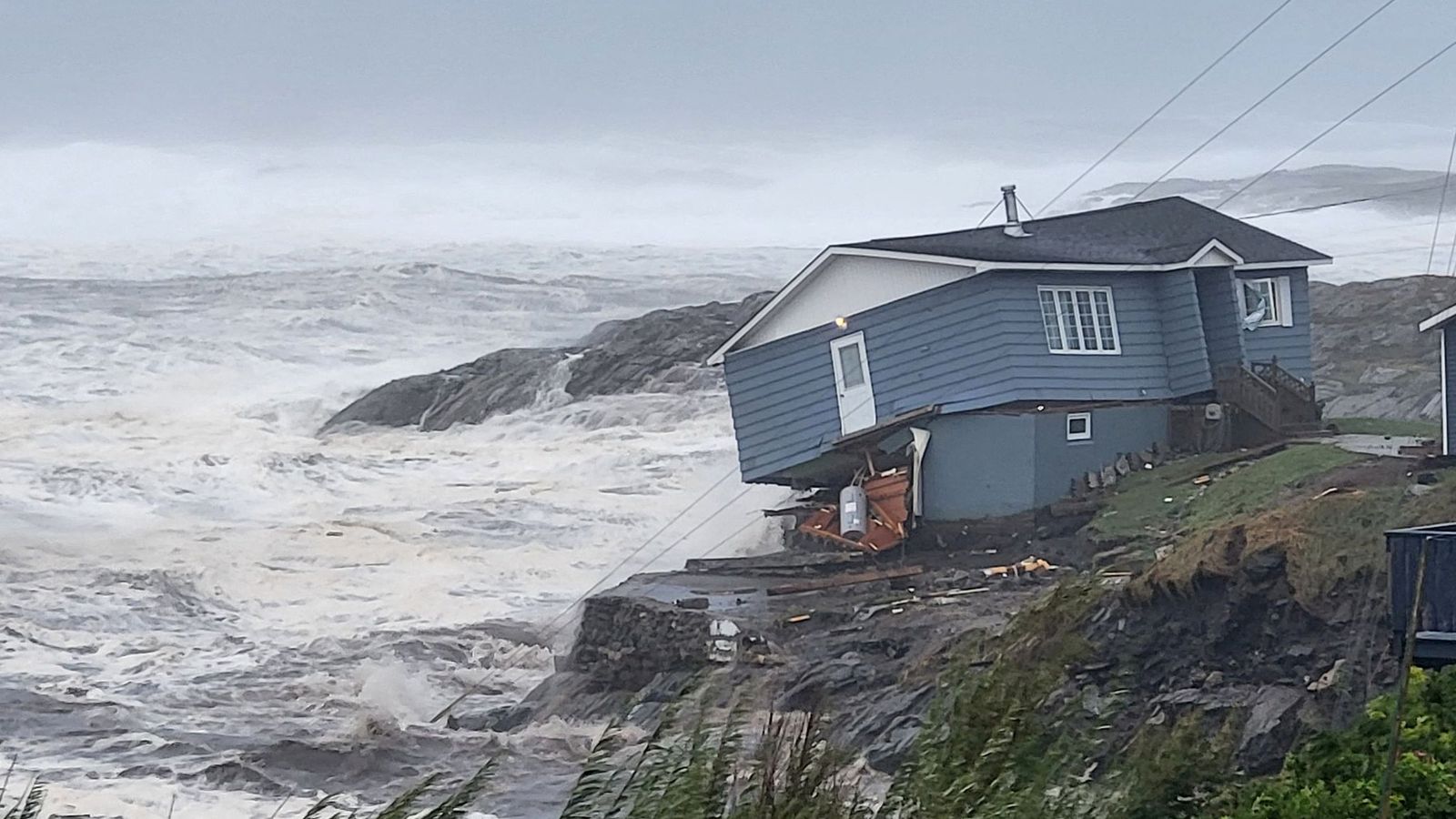Storm Fiona has washed houses into the sea, torn roofs of others, and knocked out the electricity to two Canadian provinces as it made landfall before dawn on Saturday.
Fiona transformed from a hurricane into a post-tropical storm late Friday, but it still brought with it hurricane-strength winds, drenching rains, and huge waves.
There has been no confirmation yet of any fatalities or injuries caused in Canada, but Fiona so far has been blamed for at least five deaths – two in Puerto Rico, two in the Dominican Republic, and one in the French island of Guadeloupe.
The Canadian prime minister said the storm has caused significant damage and recovery will require a “big effort”.
Prime Minister Justin Trudeau cancelled his trip to Japan for the funeral of assassinated former prime minister Shinzo Abe and said the federal government would deploy the Canadian Armed Forces to assist.
“We are seeing devastating images coming out of Port aux Basques. PEI (Prince Edward Island) has experienced storm damage like they’ve never seen. Cape Breton is being hit hard, too,” Mr Trudeau said.
“Canadians are thinking of all those affected by Hurricane Fiona, which is having devastating effects in the Atlantic provinces and eastern Quebec, particularly in the Magdalen Islands. There are people who see their houses destroyed, people who are very worried – we will be there for you.”
Canada dropping COVID vaccine entry rule for foreign travellers – report
Final suspect in Canada mass stabbings dies from self-inflicted injuries after being run off the road by police
Suspect in Canada mass stabbings, taken into custody, police say
Ocean waves pounded the town of Channel-Port Aux Basques on the southern coast of Newfoundland, where entire structures were washed into the sea. Mayor Brian Button said on Saturday over social media that people were being evacuated to high ground as winds knocked down power lines.
“I’m seeing homes in the ocean. I’m seeing rubble floating all over the place. It’s complete and utter destruction. There’s an apartment that is gone,” René J Roy, a resident of Channel-Port Aux Basques and chief editor at Wreckhouse Press, said in a phone interview.
He estimated between eight to 12 houses and buildings have washed into the sea.
Woman tossed into the sea as home collapsed
Jolene Garland, a spokeswoman for the Royal Canadian Mounted Police in Newfoundland and Labrador, said a woman was safe and in “good health” after being “tossed into the water as her home collapsed” in the Channel-Port Aux Basques area.
Garland said that an individual who might have been swept away was still reported as missing and that high winds were preventing an aerial search.
The Royal Canadian Mounted Police said the town of 4,000 people was in a state of emergency as authorities dealt with multiple electrical fires and residential flooding.
In Sydney, Nova Scotia, the largest city in Cape Breton, about 20 people took refuge at the Centre 200 sports and entertainment facility, said Christina Lamey, a spokeswoman for the region. Ms Lamey said there were hundreds of people displaced in the province.
Arlene and Robert Grafilo fled to Centre 200 with their children, ages three and 10, after a huge tree fell on their duplex apartment.
“We were trapped and we couldn’t open the doors and the windows, so that’s when we decided to call 911,” Arlene Grafilo said. She said firefighters eventually rescued them.











